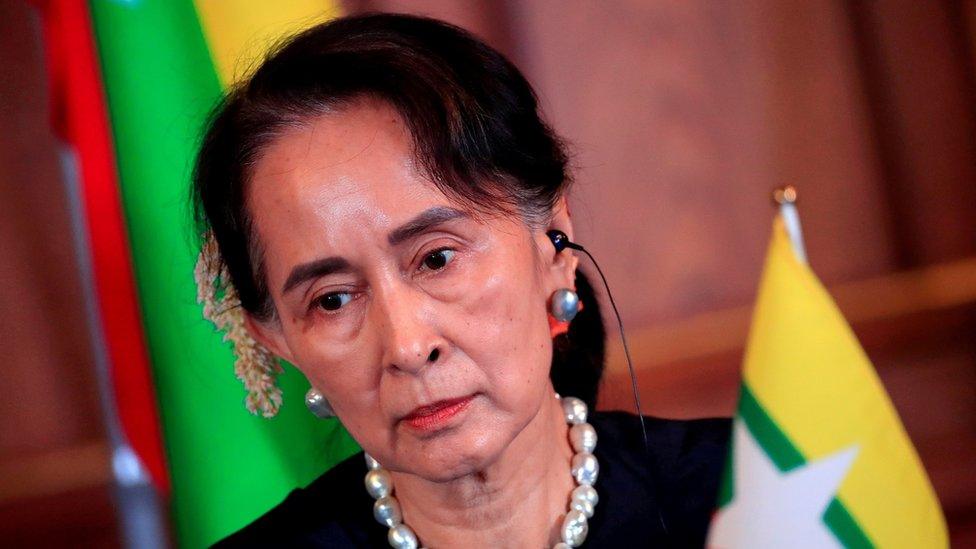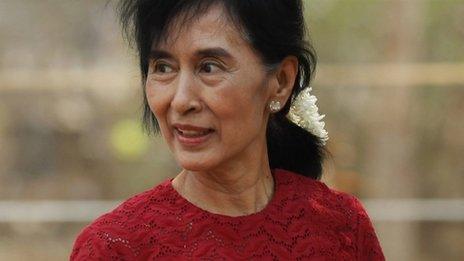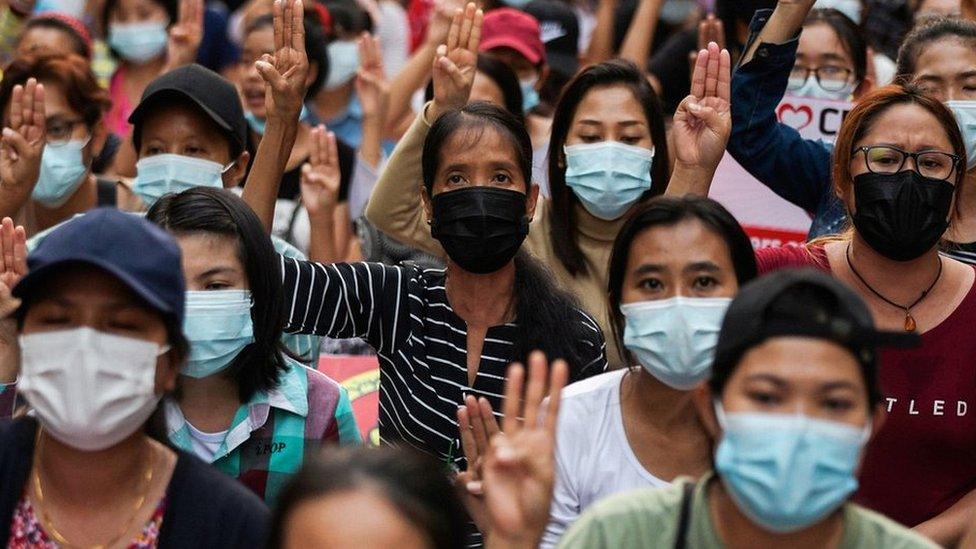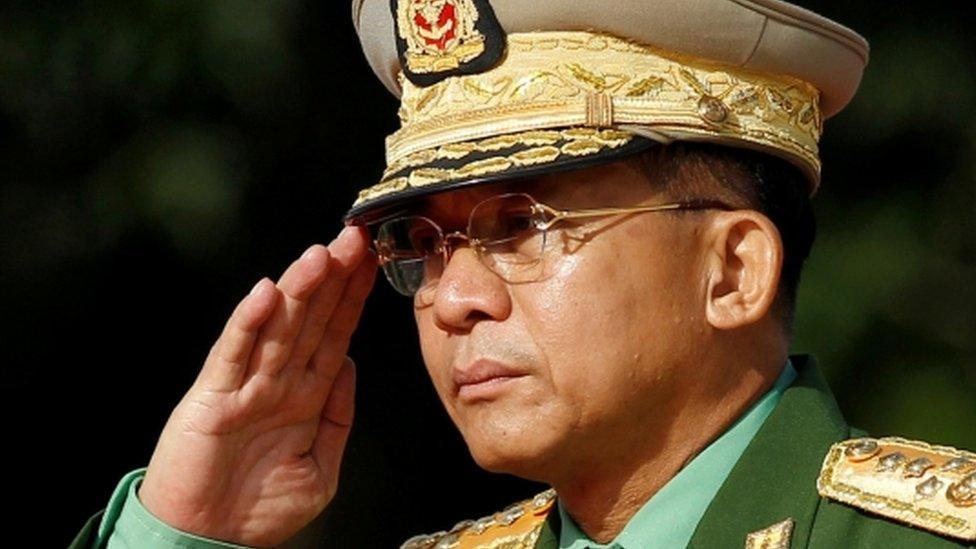Aung San Suu Kyi: Myanmar court sentences ousted leader in widely criticised trial
- Published

Ms Suu Kyi faces 11 charges in total, all of which she has denied
Ousted Myanmar leader Aung San Suu Kyi has been found guilty of inciting dissent and breaking Covid rules, in the first of a series of verdicts that could see her jailed for life.
Her sentence has been reduced from four years to two years.
Ms Suu Kyi faces 11 charges in total and denies them all. They have been widely condemned as unjust.
She has been in detention since a military coup in February toppled her elected civilian government.
Ms Suu Kyi was handed the four year sentence by a court on Monday morning, but junta chief Min Aung Hlaing later reduced it to two years.
It is not clear when or if Ms Suu Kyi will be placed in prison. She is being held at an undisclosed location.
Co-defendant Win Myint, the former president and Ms Suu Kyi's National League for Democracy (NLD) party ally, was also jailed on Monday for four years under the same charges.
UN Human Rights chief Michelle Bachelet condemned the "sham trial" and said it would only "deepen rejection of the coup".
UK Foreign Secretary Liz Truss, meanwhile, called on Myanmar to release all political prisoners and allow a return to democracy.
"The arbitrary detention of elected politicians only risks further unrest," she said.
And rights group Amnesty called the charges "bogus", saying it was the "latest example of the military's determination to eliminate all opposition and suffocate freedoms in Myanmar".
Ms Suu Kyi is next due in court on 14 December, when she will face charges of possessing illegal walkie-talkies.
Suu Kyi 'struggling'
The 76-year-old has been slapped with an array of charges, including several counts of corruption and violating the official secrets act.
In one case, Ms Suu Kyi was convicted of violating Covid restrictions for campaigning during last year's election - she had waved to supporters while wearing a mask and face shield.
In the other she was found guilty of inciting unrest for a statement calling for public opposition to the coup, put out by her party after she had already been taken into custody.
Ms Suu Kyi's lawyers, who had been the sole source of information on the legal proceedings, have also been served with gag orders forbidding them from releasing information.
Little has been seen or heard of her apart from her brief court appearances.
BACKGROUND: The general who returned Myanmar to military rule
AS IT HAPPENED: Myanmar coup: What happened and why?
PROFILE: Democracy icon who fell from grace
A spokesman for the newly formed National Unity Government, a group made up of pro-democracy figures and opponents of the coup, had earlier told the BBC Ms Suu Kyi was struggling.
"She is not OK... military generals are preparing for 104 years of sentences for her in prison. They want her to die in prison," Dr Sasa said.
The military had seized power alleging voter fraud in general elections held last year in which the NLD won by a landslide.
However, independent election observers have said the elections were largely free and fair.
The coup triggered widespread demonstrations and Myanmar's military has cracked down on pro-democracy protesters, activists and journalists.
Ms Suu Kyi is one of more than 10,600 people to have been arrested by the junta since February, and at least 1,303 others killed in the demonstrations, according to the monitoring group Assistance Association for Political Prisoners.
An icon who fell from grace
Aung San Suu Kyi spent nearly 15 years in detention at the hands of the military between 1989 and 2010, and was awarded the Nobel Peace Prize for her work to bring democracy to Myanmar.
Her party, the National League for Democracy (NLD) won a landslide victory in 2015, but she was prevented from becoming president herself by rules excluding those with foreign national children from holding that office. She was widely regarded as the de facto ruler of the country.
However her reputation abroad was severely damaged by the way she handled the Rohingya crisis, which started in 2017.
In 2019 Ms Suu Kyi appeared at the UN International Court of Justice (ICJ) to defend her country against accusations of genocide.
How did this peace icon end up at a genocide trial?
Related topics
- Published6 December 2021

- Published25 July 2022

- Published1 February 2021
